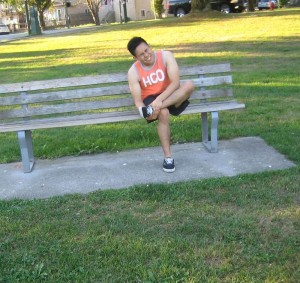A tarsal fracture involves damage to the tarsal bones positioned in the rear part of the foot. It is important to note that the tarsal bones are rarely fractured individually.
Even though this type of fracture is rare, they can occur from unexpected impact or force to the foot. Prolonged force can result to the development of a stress or hairline fracture.
Close look on the tarsal bones
The relevant tarsal bones include the following:
- Calcaneus
Tenderness over a specific region depending on the bone involved. - Cuboid
- Talus
- Navicular
- 3 cuneiform bones
These bones might end up damaged due to sudden force or impact or through repetitive forces which results to a stress fracture. The stress fractures usually affect the calcaneus and the navicular.
Indications
The usual indications of a tarsal fracture include the following:
- Abrupt pain from the impact or force
- Difficulty bearing weight
- Loss of normal foot function
- Tenderness over a specific region depending on the bone involved
- Possible deformity in traumatic cases
Management of a tarsal fracture
For traumatic cases, the individual is required to use a cast for around 6 weeks and must avoid placing any weight on the affected foot during this period.
As for stress fractures, the treatment involves the use of a walking boot or crutches to minimize the weight on the foot. Pain medications can be given to provide relief to the pain.
Surgical intervention specifically internal fixation is likely if the bone is evidently unstable to be able to heal on its own, but this is rarely needed.
Once the tarsal fracture has fully healed, the individual should start a comprehensive rehabilitation program that includes strengthening and stretching exercises to improve mobility, range of motion and flexibility.
Quick Note / Disclaimer
The material posted on this page on a tarsal fracture is for learning and educational purposes only. To learn to recognize and manage fractures, register for a first aid and CPR course with Ottawa First Aid.

